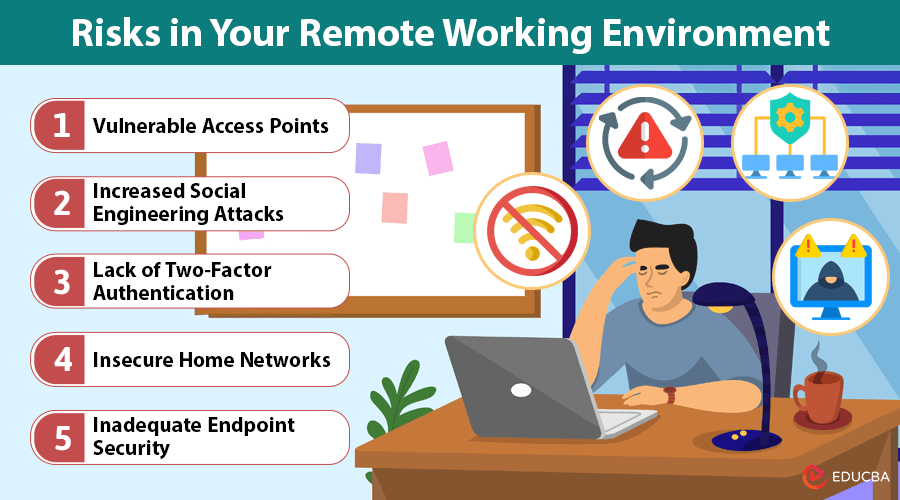
Understanding PTaaS for Remote Work Security
With more employees working remotely than ever before, organizations face an increasing challenge in securing remote access to critical applications. Whether employees travel, take a sick day, or work from home, enabling secure remote work is essential. However, traditional security methods often fall short in these dynamic, decentralized environments.
One solution is Penetration Testing as a Service (PTaaS) for remote work security. PTaaS provides a flexible and affordable way to tackle security challenges for remote teams, offering real-time threat protection and helping find vulnerabilities in remote access systems. This blog explores the key risks of remote work environments and how PTaaS is an ideal solution for safeguarding your distributed workforce.
Risks in Your Remote Working Environment
When employees work remotely, organizations automatically expand their network perimeter, which can create new vulnerabilities. Remote work often involves accessing the corporate network from various locations, such as airports, hotels, and even home networks. This decentralization can lead to increased exposure to cyber threats without proper oversight. To enhance your remote work setup, consider using white label coworking software to streamline collaboration and security.
Here are some common risks associated with remote work:
1. Vulnerable Access Points
Teams often rely on virtual private networks (VPNs) to securely access company resources remotely. If you do not update these VPNs with the latest security patches, attackers can target them.
Solution: Regular penetration testing helps identify vulnerabilities in VPNs, remote desktop protocols (RDP), and virtual desktop infrastructures (VDI). PTaaS for remote work security evaluates these access points and improves the security of remote workers.
2. Increased Social Engineering Attacks
Remote workers are more at risk of social engineering attacks, like phishing, where attackers trick people into revealing sensitive information. These attacks can occur even with robust email filters, especially when employees check personal emails on their devices.
Solution: Phishing simulations are a critical PTaaS service that can help organizations assess how employees respond to these threats. By identifying weak spots, PTaaS enables you to educate employees and improve defenses against phishing and other social engineering tactics.
3. Lack of Two-Factor Authentication (2FA)
Remote access to company systems without 2FA creates significant security risks, as attackers can exploit the lack of an additional layer of authentication.
Solution: PTaaS for remote work security evaluates whether you have implemented 2FA across all remote access points. This proactive approach enforces 2FA, securing your workforce from unauthorized access.
4. Insecure Home Networks
Employees working remotely, especially from home, may connect to unsecured Wi-Fi networks or fail to secure their home routers, making company data vulnerable to interception by cyber criminals.
Solution: PTaaS can conduct external penetration tests to assess the security of home network environments. By simulating attacks, PTaaS identifies vulnerabilities and helps prioritize improvements to protect sensitive data from external threats.
5. Inadequate Endpoint Security
Remote employees often use personal devices, which may not have the same security protections as company-managed devices. This opens the door for increased vulnerabilities, especially if those devices lack antivirus software, encryption, or firewalls.
Solution: PTaaS for remote work security actively tests the security of employee devices, ensuring that all endpoints undergo regular evaluations for vulnerabilities. Regular assessments help ensure a secure remote working environment by identifying weaknesses and recommending mitigation strategies.
Why Siemba’s PTaaS is Perfect for Remote Work Security?
Siemba’s PTaaS provides a complete, real-time threat detection solution that tackles the specific challenges of securing remote teams. By combining automated scans with manual evaluations, Siemba provides continuous security testing that adapts to your organization’s needs.
Key Benefits of Siemba’s PTaaS for Remote Work Security:
- Real-time Threat Protection: Continuously test for vulnerabilities to respond to emerging threats proactively.
- Comprehensive Security Assessments: Detailed reports highlight vulnerabilities, assess existing security controls and guide improvements.
- Scalable and Flexible: PTaaS solutions for remote teams help organizations adjust their security efforts to fit their unique remote work setups.
Siemba’s PTaaS solutions provide businesses with a proactive approach to security, ensuring that teams stay constantly protected against evolving cyber threats.
Final Thoughts
Securing your distributed workforce has never been more important as remote work grows. PTaaS is essential for remote work security in identifying and addressing real-time vulnerabilities. With Siemba’s PTaaS, you can continuously protect your remote teams against cyber threats.
Do not wait for a breach to occur. With PTaaS, you can avoid threats and safeguard your organization’s sensitive data. Contact Siemba today to learn how we can help you secure your remote workforce and improve your overall cybersecurity posture.
Recommended Articles
We hope this article on PTaaS for Remote Work Security was helpful. Check out these recommended articles to explore more ways to protect your organization’s cybersecurity and secure remote teams.
- Importance of Cybersecurity
- Why Choose Cybersecurity?
- Cybersecurity Threats
- Cybersecurity on a Budget Protecting Small Businesses from Threats
